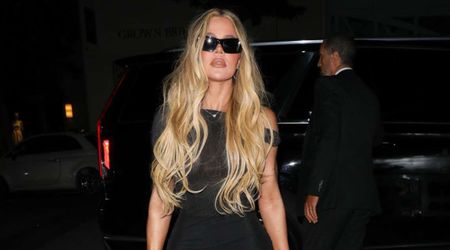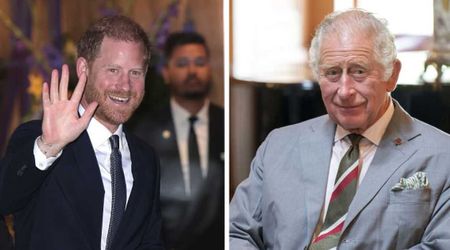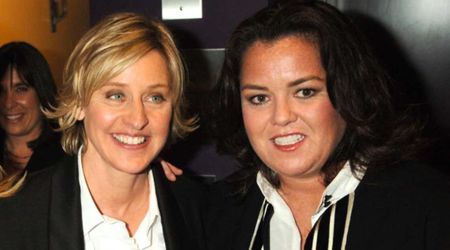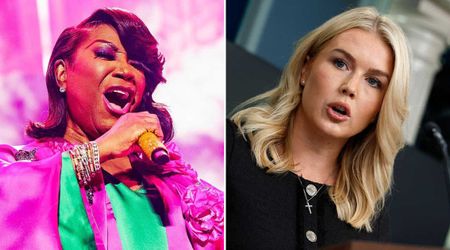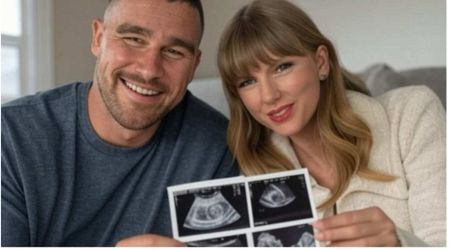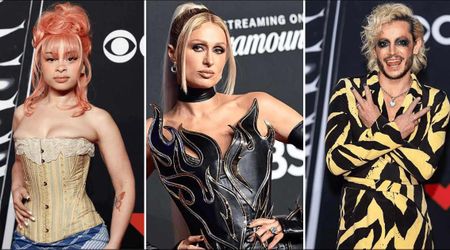Emma Watson appears to share sharp message for JK Rowling after UK Supreme Court trans ruling

NEW YORK CITY, NEW YORK: Emma Watson has broken her silence amid the ongoing legal debate surrounding transgender rights and author JK Rowling's controversial views on the subject.
The Harry Potter star, 35, posted a pointed quote on Instagram following a landmark UK Supreme Court ruling last month that legally defined "woman" in the context of the 2010 Equality Act as referring to biological women only.

Emma Watson breaks silence after Supreme Court trans ruling
Emma Watson, long seen as one of the most vocal critics of Rowling’s stance among the original film cast, did not directly address the court’s judgment, or Rowling herself, in her post.
But the timing and tone of her message left little doubt about where she stands. Quoting British writer Matt Haig, Watson shared with her 73.3 million followers, “To the person who said they like me best when I am not ranting about politics: I like me best when I am not ignoring fascism.”

The post quickly gained traction online, especially in the wake of an open pro-trans letter signed by more than 400 industry professionals, including Harry Potter newcomer Paapa Essiedu, putting them at odds with Rowling’s position.
While the court’s ruling was nuanced, with Supreme Court Judge Lord Hodge cautioning against treating the verdict as a "triumph" for any side, gender-critical campaigners celebrated the decision as a major victory.
Rowling herself posted a photo puffing on a cigar aboard her superyacht, captioned with a quote from The A-Team, “I love it when a plan comes together.”
I love it when a plan comes together.#SupremeCourt #WomensRights pic.twitter.com/agOkWmhPgb
— J.K. Rowling (@jk_rowling) April 16, 2025
The best-selling author, 59, reportedly helped fund the women’s rights campaign group that brought the case.
Her response, both on social media and in the press, was unambiguous and defiant.
What was notable, however, was the silence from many 'Harry Potter' alumni, until Watson’s post.
JK Rowling throws shade at Daniel Radcliffe, Rupert Grint, and Emma Watson
Daniel Radcliffe, Rupert Grint, and Emma Watson have all previously distanced themselves from Rowling’s views, publicly expressing support for the trans community while still acknowledging the author’s impact on their careers. But in recent months, none had addressed the growing rift.
That rift, however, has not gone unnoticed by Rowling. Just last month, she appeared to take a jab at the trio when replying to a post on X (formerly Twitter) asking, “What actor/actress instantly ruins a movie for you?”
Three guesses.
— J.K. Rowling (@jk_rowling) March 18, 2025
Sorry, but that was irresistible.
🤣🤣🤣 https://t.co/hAMHw2b8EV
Rowling replied, “Three guesses. Sorry, but that was irresistible.”
This wasn’t the first time Rowling had expressed disappointment or even disdain toward the actors who starred in the movie adaptation of her books.

In April 2023, she criticized celebrities she claimed had "cosied up to a movement intent on eroding women’s hard-won rights," and voiced her unwillingness to forgive Radcliffe or Watson.
She also specifically criticized public figures who supported what she called the "transitioning of minors" after the Cass Review, a UK government-commissioned report, concluded that evidence for gender-affirming treatments such as puberty blockers was "remarkably weak."

The report further stated that medical pathways may not be the best solution for most young people experiencing gender distress.
Meanwhile, the legal case at the heart of the recent ruling stemmed from a challenge by women’s advocacy group For Women Scotland against the Scottish government.
The group argued that only individuals born female should qualify for sex-based protections under the Equality Act, while the Scottish government insisted that transgender women with a Gender Recognition Certificate (GRC) should be equally protected.
The Supreme Court ultimately sided with For Women Scotland, ruling that trans women with a GRC could be excluded from single-sex spaces if it was “proportionate.”

